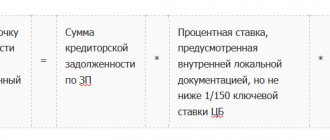Last modified: January 2021
An integral part of hiring is an interview. Since the results will depend on how the upcoming conversation goes, you should determine in advance what questions to ask the employer at the interview. It’s good when the job is satisfactory both in terms of salary and growth prospects. However, more often you have to look for a new employer, assessing the chances of successful employment in a new company.
Labor relations always require an agreement between two parties - the company and the hired specialist. The first agreements arise at the stage of the first meeting, when both parties assess the prospects and benefits of cooperation by asking work-related questions.
What else can you ask during an interview with an employer?
Naturally, you should not ask all the questions from our list at once, otherwise it will seem that it was not you who came for the interview, but to you. You should always act according to the situation and in accordance with the context of the conversation.
If the above-mentioned questions are not enough for you, here is another small list that may be useful in a conversation with an employer.
- Does my position require participation in additional projects?
- How common are promotions for people in my position?
- What responsibility will I bear to the company?
- What will my salary be?
- Do you have bonuses for overtime?
- Does the company provide additional training for its employees?
- Does the company have a strict dress code?
- Tell us about the procedure for applying for a job;
- Tell us about the company's plans for the next three, five or ten years.
- Author: Dmitry Petrosyants
Methods for assessing applicants
In psychology, various tools are used to “get to the bottom” of a person: to find out all his personal motivational forces and even secret fears. The whole difficulty lies in the fact that the employer or HR specialist needs to obtain the full amount of information to fairly assess the candidate in a short time.
Interviews differ in the pattern of communication between the interviewer and the potential employee:
- Structured. The second name for these types of interviews is “hard”. The interview plan presupposes a strict order of questions; the conversation does not go into a “free flow”. Such an interview is more like a dry questionnaire. Today, almost all companies have abandoned it due to inefficiency.
- Free. Unstructured interview methods allow the applicant to speak out, stop being nervous and open up to the employer as much as possible. This method involves light moderation, but not strict control over the flow of the conversation. However, the applicant may turn out to be too sociable, and then the conversation will turn out to be long and useless.
- Combined. The “golden mean” is always the best option, which is why reputed corporations choose this method to evaluate applicants for positions in the organization. In this type of interview, options are possible: sometimes the conversation begins in free form, and then the employer moves on to the prepared part. You can do the opposite: start the interview with clear questions and short answers, and then move on to free communication on topics remotely related to work.
Interviews are also divided according to the number of participants in the process into the following types:
- Personal. Individual interviews take place in person - one-on-one with the manager. This format creates the most open and trusting atmosphere; there is no effect of a “commission of examiners,” thanks to which the candidate can relax and open up during the interview.
- Group. This type of interview involves the employer communicating with several applicants at the same time. This creates a spirit of competition: applicants will try to show their best side. However, in this case, it can be difficult to understand the advantages of a particular candidate, because the biographies of applicants are easy to confuse, and communication with potential competitors is unlikely to be trusting.
- Panel. They differ from group interviews in that there are several interviewers per applicant. In this case, the candidate’s assessment will be more objective, and the company’s presentation will be interesting and comprehensive, however, a person’s experiences in front of the commission may negatively affect his answers.
- Serial. Unlike the panel method, interviews take place with each member of the “employer team” in turn. The only disadvantage of the method is the large amount of time spent and discomfort for the applicant.
A special place in the classification of methods for assessing applicants is occupied by stress interviews. This method is controversial: it may not demonstrate a person’s ability to work under unforeseen circumstances, but may only worsen the organization’s reputation. Stories about “bullying at an interview” can become public thanks to social networks.
It is important to remember that reviews from unsuccessful employees can be either a valid reason for applying for a vacancy or a reason for unpleasant associations with the organization.
Experienced HR specialists, in their recommendations on how to interview a job candidate, advise managers and recruiters to abandon the stressful method. They are also asked to think during the interview whether the stress test is happening unconsciously for the employer.
How to prepare for an interview?
An important rule: you need to clearly define your expectations from a specialist, and do this as realistically as possible. Of course, every employer wants to find a competent, responsible, efficient and versatile employee who does not have excessive salary expectations. However, in practice, a new team member will have to be trained for some time and adapted to the peculiarities of working in the organization. The only question is the duration of the “internship”: how ready a person is to perceive new information, comply with the principles of corporate culture and comply with established rules.
In books for recruiters, various authors agree that it is better to train a capable person “to suit you” than to try to re-educate, because this will not bring a long-term effect. If the character traits, business qualities, internal motivation or other characteristics of the candidate do not suit the employer, it is better to politely refuse the job and continue the “casting”.
In order to have time to find out all the information during a conversation with a candidate for a position, an HR specialist or company manager needs to draw up an interview algorithm, determine the sequence and timing of questions, and also think over a system for evaluating the answers received.
What questions should you not ask?
Now let's discuss the most important thing: what not to talk about with the candidate.
You should immediately exclude all platitudes:
- The question “Where do you see yourself in 5–10 years?” in modern changing conditions has lost its relevance.
- Attempts to find out the reason for leaving a previous job are unlikely to be successful. None of the candidates talk about problematic situations at the first meeting.
- “What qualities do you consider positive in yourself?” - a question that has long been answered for the applicant. You can find articles and even books on this topic to help you prepare for interviews.
Questions asked to candidates during an interview should not be of a personal nature: few people like it when strangers ask about their secrets. In cases where the topic of conversation is not directly related to work, leave questions for conversations in the “manager-subordinate” format, if this is appropriate.
Personal conversations include conversations on the following topics:
- family life (status in personal life, planning maternity leave);
- religion;
- political preferences.
You should not repeat questions from your resume. This will highlight the fact that the document was not read carefully, if at all.
Errors
The main violations of the rules of a good interview on the part of the employer include:
- Late. The general impression of the company is created at the first meeting of a potential employee with the employer. If the leader of an organization allows himself to cancel plans without warning, then this will become a reason for the applicant to think about his dishonesty in other matters.
- Recruiter incompetence. It is important that the interviewer can answer all the potential employee’s questions about the specifics of working in the organization. Also, an inexperienced person will not be able to appreciate all the advantages of the applicant for the position. This is why you cannot ask someone to “replace” the director or HR specialist at an interview.
- Lack of a clear conversation plan. If the interview storyline constantly deviates from the topic of the job, there is a risk that the employer will forget to clarify important points with the applicant and for this reason will not hire him.
The employer's main mistake is unclear requirements. In this case, either all interviews will be unsuccessful, or the selection of the employee will be made at random.
It’s not even worth reminding about the employer’s honesty. If, during an interview, an applicant is promised favorable conditions, which later turn out to be a “bait,” he will quickly leave his new job, and the company’s reputation will be hopelessly damaged.
Reviews:
Marina, 31 years old, Ufa
I was interviewed at a reputable company for the position of accountant. It was difficult, I was constantly bombarded with tricky questions. The only thing that helped was the innate feeling of the interlocutor and the suit, oddly enough. That day I was wearing a strict white pencil skirt, the jacket was more or less strictly cut, also white. Blue blouse. Makeup is natural. Throughout the interview, my future employer carefully assessed me and my image. Judging by the fact that I was hired immediately after the interview, she liked everything.
Irina, 24 years old, Moscow
It was difficult for me to find a job in Moscow, but I was used to fighting to the end. My self-confidence helped me get the position of office manager with a large company. I answered questions briskly and didn’t pour water.” I’ve been shy since childhood, but at that moment fear paralyzed me so much that I stopped being afraid altogether. But then, after the interview, I broke out in cold sweat. She showed herself to be confident and had to live up to this opinion about herself in a new place. Now there is no trace of shyness left.
Concept of suitable work in law
The legislator determined that a job should be considered suitable if it suits a particular citizen in terms of qualifications, fitness, health, ability to get to the workplace in a timely manner, and also has something in common with what he previously did.
The criteria for suitable work are defined in legislation
In the classical sense, labor activity performed by citizens for money, which does not require special skills and qualifications, and fully complies with regulatory documents in terms of working conditions, should be considered suitable. Usually at the labor exchange such work is offered to the following categories of citizens:
- those who are looking for their first job and do not yet have special skills and qualifications;
- those who were fired more than once in a year or who stopped working at their previous place of work due to violation of labor discipline;
- having a break after the previous dismissal of more than a year or those who, for personal reasons, have not completed the appropriate training organized by the employment center;
- those who did not want to retrain after receiving unemployment benefits;
- those who have been registered for more than one and a half years, as well as citizens who have had a break from their last termination of employment for more than three years;
- previously involved in seasonal work after its completion.
It is important to note that an offer of such work will only be provided if its maximum distance from the applicant’s place of residence does not exceed the critical distance established by the employment service.
It should be noted that the legislator also determined what work should not be considered suitable for a particular citizen. This list included:
- labor activity, for which the citizen will have to change his place of residence, but he does not agree to this;
- if the place of future work does not meet basic labor protection requirements;
- when the salary level is lower than what the citizen received in the last three months before the day of dismissal.
Remember, if a job does not suit you according to some criteria (for example, it is located far from your home), but you are determined to get it, the employment service does not have the right to refuse you.










